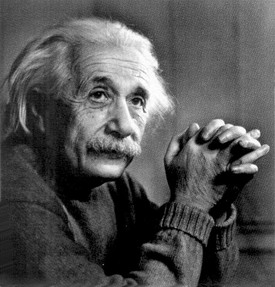09 Mar The Scientist & Jesus: Sharing the Devout Temper
 William James once remarked that while scientists often possess no religious creed, their temper is devout. In other words, most scientists are deeply awed by the majesty of the universe. Thus they approach their work in a way that is earnest, patient, and humble before the face of the world’s grand complexity—regardless of whether or not they possess a religious faith.
William James once remarked that while scientists often possess no religious creed, their temper is devout. In other words, most scientists are deeply awed by the majesty of the universe. Thus they approach their work in a way that is earnest, patient, and humble before the face of the world’s grand complexity—regardless of whether or not they possess a religious faith.
These days it often seems that only the scientist retains a devout temper. A coarsening of discourse and temperament has invaded not only our popular media and politics, but our workplaces and even, at times, our churches—with preachers letting their egos get the better of them and using the power of the pulpit not to guide parishioners toward the Christ within, but to transform themselves into what Mark Twain might have called the braying ass.
If humankind is indeed a microcosm of the universe, we need to begin approaching our friends, neighbors, colleagues, and family with a devout temperament equal (if not surpassing) that which the scientist shows his work—recognizing that there is a grand complexity at work within each and every one of us, and that it is our calling to assist and be a part of the smooth working of that system—to grease the wheels, as it were, and not throw wrenches into the gears. Today we have become more or less a society of wrench throwers, and we are paying the price in our economy, or families, and our communities.
Jesus said that the most important commandment was to love the Lord thy God with all our hearts and minds1 because this is an act which creates a devout temperament; and a devout temper is the first step toward making his Father’s Kingdom Come.
- “Teacher, what is the great commandment in the law?” 37 His answer was: “Thou shalt love the Lord thy God with all thy heart, and with all thy soul, and with all thy mind.” 38 This is the great first commandment. – Matt 22:36-38 [↩]
